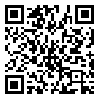Volume 17 - Supplement of 11th Annual Iranian Congress of Medical Ethics (Oral Presentation)
IJMEHM 2024, 17 - Supplement of 11th Annual Iranian Congress of Medical Ethics (Oral Presentation): 1-2 |
Back to browse issues page
Download citation:
BibTeX | RIS | EndNote | Medlars | ProCite | Reference Manager | RefWorks
Send citation to:



BibTeX | RIS | EndNote | Medlars | ProCite | Reference Manager | RefWorks
Send citation to:
Moghaddasi H. Ethical Considerations of Using Electronic Health Records by Healthcare Providers. IJMEHM 2024; 17 (S1) :1-2
URL: http://ijme.tums.ac.ir/article-1-6852-en.html
URL: http://ijme.tums.ac.ir/article-1-6852-en.html
Professor, Department of Health Information Technology and Management, Shahid Beheshti University of Medical Sciences, Tehran, Iran
Abstract: (116 Views)
The ethical use of patient medical records by healthcare providers is fundamentally guided by the patient's right to privacy and confidentiality, enshrined in patient rights charters. Users of patient medical records are categorized as authorized (e.g., clinicians directly involved in patient care) and unauthorized (e.g., administrative staff, external entities). This categorization informs both internal and external information disclosure policies. Authorized users access patient records based on the "need to know" principle, ensuring confidentiality while adhering to internal disclosure protocols. Unauthorized users have limited access, primarily governed by external disclosure policies that restrict access to personally identifiable information.
The transition from paper-based to electronic health records (EHRs) significantly alters the ethical landscape for healthcare providers. While paper records primarily raised concerns about physical security, EHRs present unique ethical challenges in three key areas:
1. Respect for Patient Information: Proper use of patient data requires a deep understanding of the ethical implications of accessing and utilizing sensitive information.
2. Privacy and Confidentiality: Maintaining patient privacy and confidentiality in the digital age requires robust security measures and a commitment to data protection best practices.
3. Data Integrity and Accessibility: Ensuring the accuracy, completeness, and accessibility of EHR data while maintaining patient privacy presents a complex challenge.
Healthcare providers, particularly physicians and nurses with extensive EHR access, must prioritize patient privacy and data confidentiality when utilizing information technology in patient care. This includes proactively mitigating threats to data security and adhering to strict ethical guidelines for data access and use.
The transition from paper-based to electronic health records (EHRs) significantly alters the ethical landscape for healthcare providers. While paper records primarily raised concerns about physical security, EHRs present unique ethical challenges in three key areas:
1. Respect for Patient Information: Proper use of patient data requires a deep understanding of the ethical implications of accessing and utilizing sensitive information.
2. Privacy and Confidentiality: Maintaining patient privacy and confidentiality in the digital age requires robust security measures and a commitment to data protection best practices.
3. Data Integrity and Accessibility: Ensuring the accuracy, completeness, and accessibility of EHR data while maintaining patient privacy presents a complex challenge.
Healthcare providers, particularly physicians and nurses with extensive EHR access, must prioritize patient privacy and data confidentiality when utilizing information technology in patient care. This includes proactively mitigating threats to data security and adhering to strict ethical guidelines for data access and use.
Keywords: Electronic Health Records, Ethical Consideration, Privacy, Confidentiality, Data Security, Healthcare Providers
Type of Study: Ethics Congress |
Subject:
Congress of Ethics
Received: 2025/01/20 | Accepted: 2024/12/30 | Published: 2024/12/30
Received: 2025/01/20 | Accepted: 2024/12/30 | Published: 2024/12/30
| Rights and permissions | |
 |
This work is licensed under a Creative Commons Attribution-NonCommercial 4.0 International License. |





